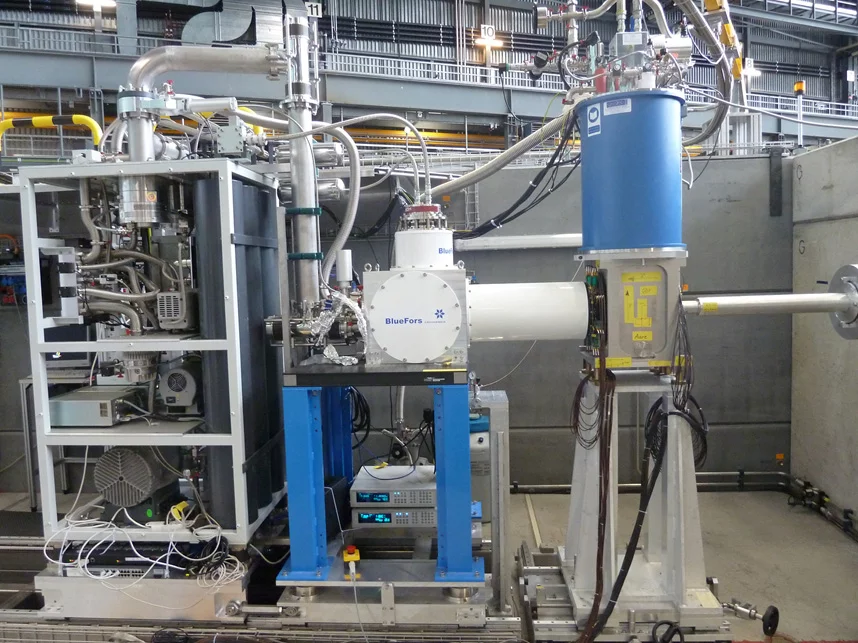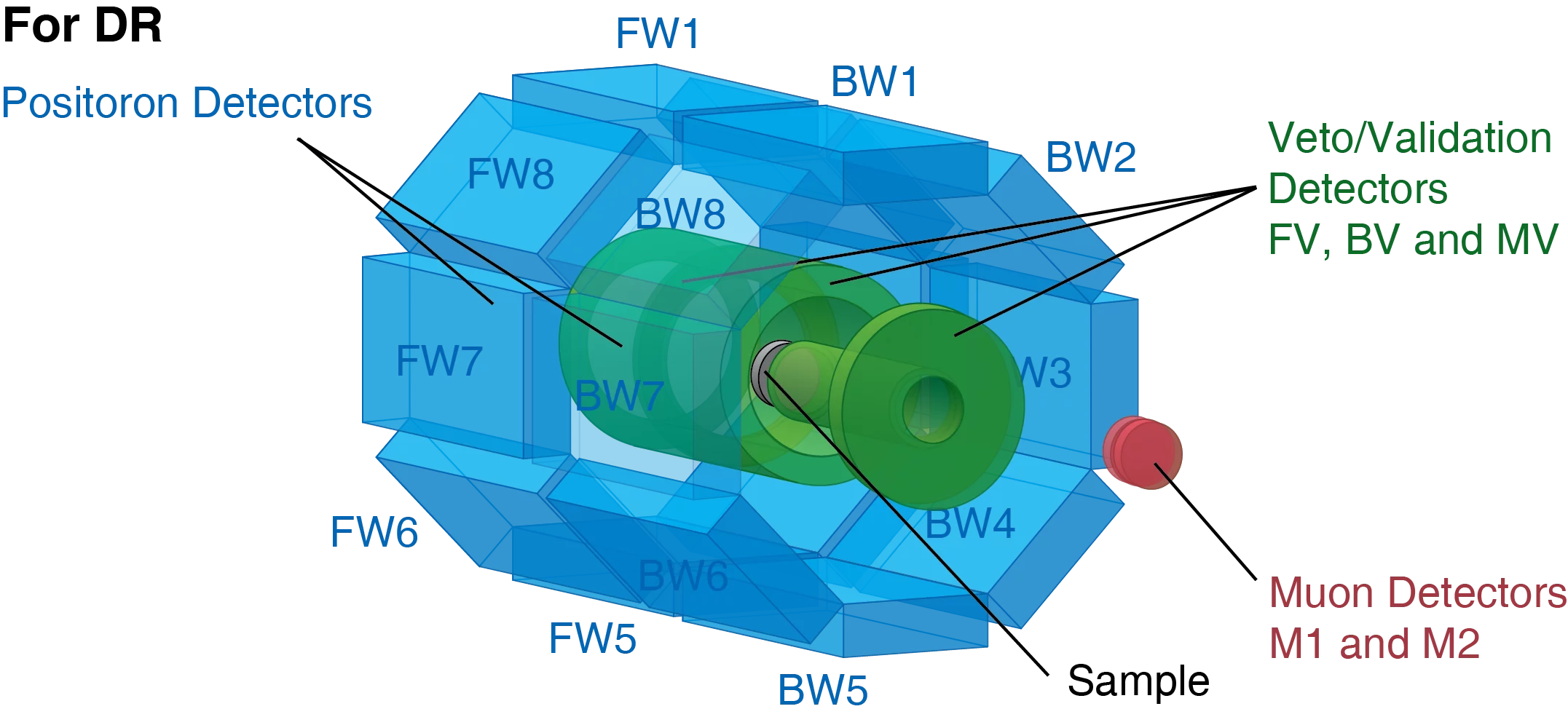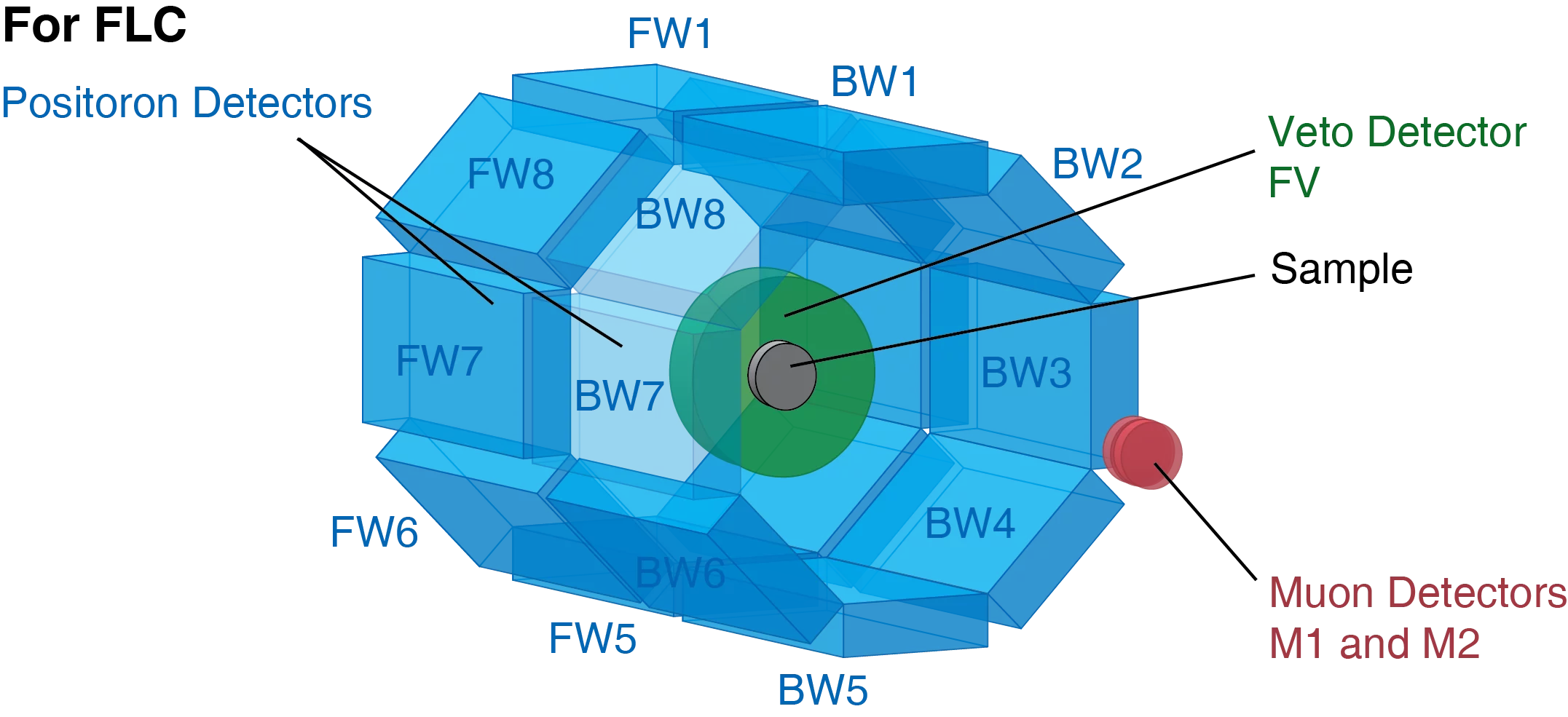General Specifications
Location
Area piE3
Beam
Positive surface muons with momentum of 28MeV/c
Muon Polarization
~ 100% (spin rotation ~ 90 degrees) / > 95% (spin rotation ~ 10 degree)
Detectors
2 x 8 positron detectors + muon detector + veto/validation detector
Magnet
Oxford Instrument superconducting split pair magnet (up to 9.5 T)
Cryostat
BlueFors Cryogen-free Dilution Refrigerator (DR) / Janis Flow Cryostat (FLC)
The following detailed information is available:
- Panorama view of the spectrometer in the piE3 experimental area
- Operator's handbook of the Oxford magnet
- Design drawing of the Janis cryostat
Sample Environment
Magnetic Field
Magnetic field up to 9.5 T can be applied along the beam by using the Oxford Instruments superconducting split pair magnet. Shim coils are used to adjust homogeneity of the magnetic field in the sample space. Inhomogeneity is smaller than 0.1 mT. Running the magnet at 4.2 K
0.01 T < H < 8 T
Running the magnet at 2.2 K (lambda point)
8 T < H < 9.5 T
Cryostat
BlueFors vacuum-loaded cryogen-free dilution refrigerator (DR) or Janis continuous flow cryostat (FLC) can be used. The sampe is in a vacuum environment. DR
Temperature range: ~ 10 mK < T < 10 K
Recommended sample size: diameter 8 mm
FLC
Temperature range: ~ 2.4 K < T < 300 K
Recommended sample size: diameter 8 mm
Detectors and Logic
Detector Arrangement
2 x 8 positron detectors are arranged in two rings. Each scintillator is directly connected to the multi-pixel photon counter (Hamamatsu, 3x3 mm2, 3600 pixels), which is unaffected by the magnetic field up to 9.5 T. A veto detector rejects muons which did not stop in the sample.Data Acquisition
Data Format and Storage
The users are responsible to store in a safe place their own data. Every week a backup of the data is performed in the PSI Archive system and the specific muSR ftp-server (see here for more information).You are strongly adviced to retrieve your data ("bin"-format) using our new ftp-server.
Computers
The area is equipped with an experiment console (running Scientific Linux) pc11320.The µSR data acquisition system hardware consists of this console and a Linux back-end server (psw416) both located in the experimental hall (PiE3 barracks). This back-end is connected to a front-end PC running Scientific Linux and controlling the VME DAQ unit.
Scientific Case and Project Description
- Scientific Case
- Project Description
- Installation of the horizontal dilution fridge BF-H400 (Feb. 2012)


